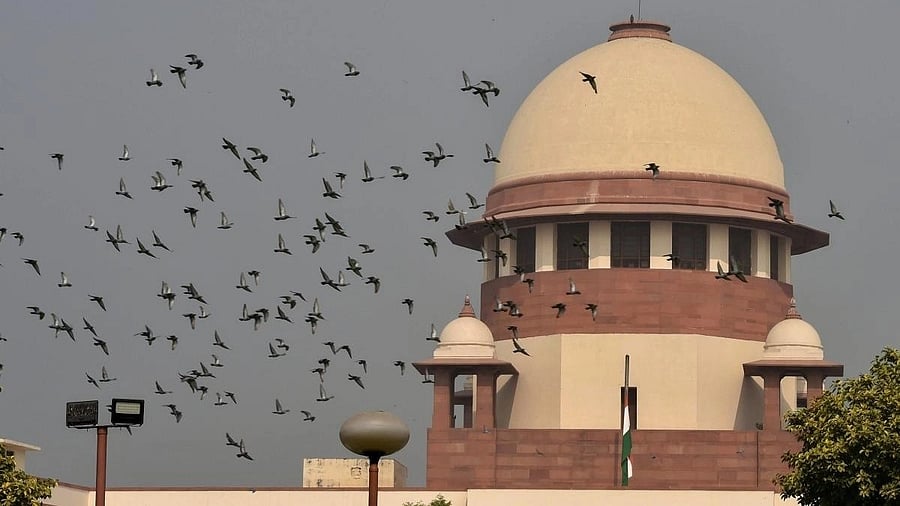
Supreme Court of India.
Credit: PTI Photo
New Delhi: The Supreme Court on Friday said the Enforcement Directorate (ED) can inform the grounds of arrest to an accused in a money laundering case within 24 hours.
The top court also declared its 2023 judgement in the Pankaj Bansal case requiring the ED to explain the grounds of arrest in writing as a matter of course and without exception to be applied prospectively only.
A bench of Justices Bela M Trivedi and Satish Chandra Sharma pointed out that a three-judge bench in Vijay Madanlal Choudhary case (2022) had already examined in detail and upheld the constitutional validity of Section 19 (power of arrest) of Prevention of Money Laundering Act on the touchstone of Article 22(1) (a person is to be informed about the grounds of arrest) of the Constitution.
The bench said that any observation made or any finding recorded by the division bench of lesser number of judges contrary to the said ratio laid down in Vijay Madanlal Choudhary case would not be in consonance with the jurisprudential wisdom.
So, this Vijay Madanlal Choudhary judgement holds the field as on the date, the court said.
Notably, separately a review petition against the Vijay Madanlal Choudhary judgement is pending before a three-judge bench.
The court explained the legal position while rejecting a plea by Ram Kishore Arora, founder of real estate company Supertech, for applying the Bansal judgement retrospectively and declare his arrest by the ED as illegal for not providing the grounds of arrest in writing.
The bench said that in the Bansal judgement, the two-judge bench had used the word “henceforth”, meaning thereby furnishing grounds of arrest in writing to the arrested person immediately after his arrest was not mandatory or obligatory till the date of the said judgement.
The court also held that if a person arrested by the Enforcement Directorate is informed or made aware orally about the grounds of arrest at the time of his arrest and is furnished a written communication about the grounds of arrest as early as possible and within reasonably convenient and requisite time of 24-hour of his arrest, that would be sufficient compliance of not only Section 19 (power of arrest) of PMLA but also of Article 22(1) (any person arrested must be informed of grounds of arrest) of the Constitution.
Additional Solicitor General S V Raju for the ED contended that the Supreme Court's judgement in the Pankaj Bansal case was per incuriam, as the two-judge bench in the said case had deviated from the position of law settled by the prior three-judge bench judgment in 'Vijay Madanlal Choudhary and Others vs Union of India and Others' (2022) with regard to compliance of Section 19 of the PMLA.
